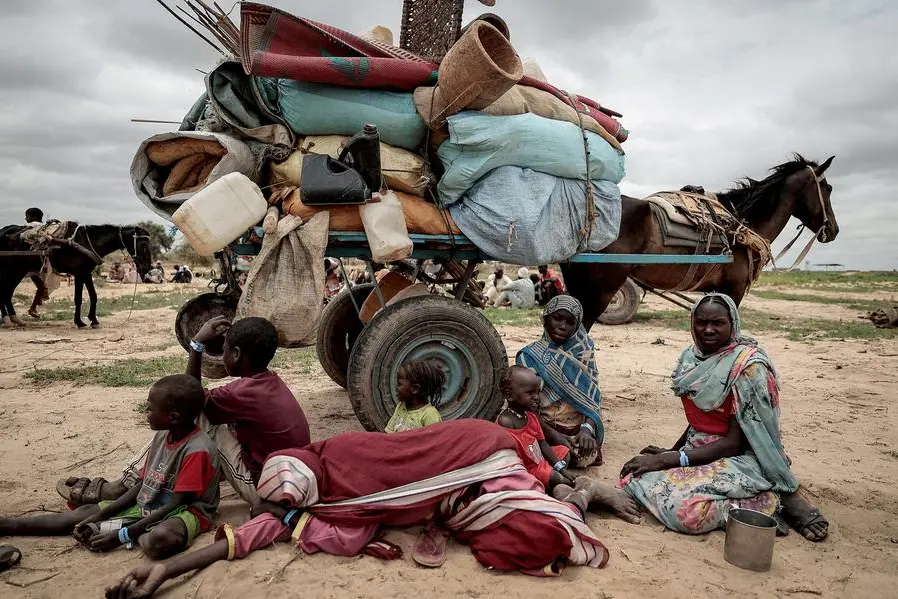PHOTO
Violence around the city of al-Fashir in Darfur, Sudan, has blocked a recently opened humanitarian corridor from Chad and time is running out to prevent starvation in the vast region, the U.N. World Food Programme said on Friday.
Attacks around al-Fashir, the Sudanese army's last holdout in Darfur and home to some 1.6 million residents, have led to dire warnings of a new wave of mass displacement and inter-communal conflict in Sudan's year-old war.
The conflict between the army and the paramilitary Rapid Support Forces (RSF) has also led to worsening hunger, with some people eating soil or leaves as famine looms.
Aid officials say both sides have been looting aid or blocking it from reaching areas where starvation is taking hold, contributing to a humanitarian crisis.
The latest violence around al-Fashir halted aid convoys coming through Chad's Tine border crossing, while restrictions by authorities aligned with the army were preventing deliveries of assistance through the only other aid corridor from Chad at Adre, WFP said.
Only small quantities of aid have entered al-Fashir during the war, the sole army-approved conduit for shipments to other parts of Darfur.
Since the end of March, 23 villages near al-Fashir have been razed, potentially by the RSF, according to a study of satellite imagery by the Yale Humanitarian Research Lab published on Thursday.
In the city itself, more than 600 buildings have been damaged by burning during the same period, including in areas where the army is reportedly carrying out bombardments, the study said.
Analysis of whether the RSF was responsible for widespread damage inflicted on a single area on April 28-29 was ongoing, it added.
In the Zamzam refugee camp in North Darfur, where there have been no official food distributions since May 2023, 30% of at least 46,000 children are suffering from acute malnutrition "revealing a massive crisis in the making", medical charity MSF said on Thursday.
"Despite being aware of the severity of the situation, and despite famine alerts coming from U.N. agencies themselves, the U.N. are doing far too little to prevent the malnutrition crisis in Zamzam from falling further into catastrophe," MSF said in a statement.
(Reporting by Aidan Lewis and Nafisa Eltahir, Editing by William Maclean)





















